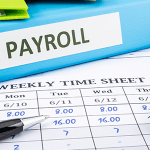While not all job applications will ask you for a CV these days when you apply for a post, creating one is still highly recommended as it can hasten the application process. For instance, instead of having to sort through your certificates and remember every start and finish date, you can turn to your CV and use it to quickly retrieve the information you need when you apply for a job.
But what should your CV contain? Is some information more important than others?
In this post, we will supply you with a detailed checklist of everything you need to create an impressive and memorable CV.
- Personal information – this should include your name, marital status, home address, contact information (phone and email) and your date of birth.
- Introduction (optional) – if you are applying for a specific job i.e. a copywriter, this introduction can be used to highlight your skillset and overall level of knowledge and experience.
- Qualifications – these should run in chronological order of your most recent qualifications down to your oldest. This ensures employers see your highest qualifications first before discovering your educational overall history and it’s vital that you include every qualification you’ve ever earned, degree, A-levels, NVQs, online courses, GCSEs… as every single one of them will have supplied you with valuable, transferable skills.NOTE: when writing this section it is important that you also include where you got these qualifications (educational establishment) and the years you achieved them.
- Job history – again you should start with your most recent jobs before working your way back in time.However, at this point you have got two choices. You can either:
– Create a generalised CV containing every job you’ve ever had. This is ideal if you want to apply for a broad range of jobs at the same time, as it will allow you to showcase your vast experience. In addition, it will reveal whether there has ever been any gaps in your working history.
– Create a tailored CV. If there is a specific field you want to work in and not all of your jobs are applicable, then you may want to design a CV that focuses solely on your experience in that niche. PLEASE NOTE: if you’ve experimented with many different careers over the years, then focusing on one career field could make it appear as though there were times you didn’t work.Remember, whatever CV style you choose, it is important that you include the following information:
– Job title
– Company name and address
– Duration of job (start and finishing dates)
– Job responsibilities – what was your job and what were you responsible for - Hobbies – you need to prove that you are more than your education and job history. You can achieve this by adding a section to your CV which discusses your hobbies/interests outside of work. Not only does this make you more personable, this section can also highlight other skills you can bring to the table.
- Referees – you should always include at least two work referees on your CV, and if possible one personal reference.
All of this aside, the most important thing to remember is length. Employers haven’t got time to read CVs that are 5-6 pages long. If anything, they prefer CVs that are as close to the point as possible. This means you need to highlight your qualifications and work experience as succinctly as possible, so that they can learn what they need to know quickly efficiently. We suggest sticking as close to two pages as possible.
And that’s it!
Use this checklist to structure your CV and you can give potential employers plenty to remember you by.
For more information about how you can boost your qualifications or create an impressive CV, visit our blog today.





Comments (0)
Join the conversationCancel Reply